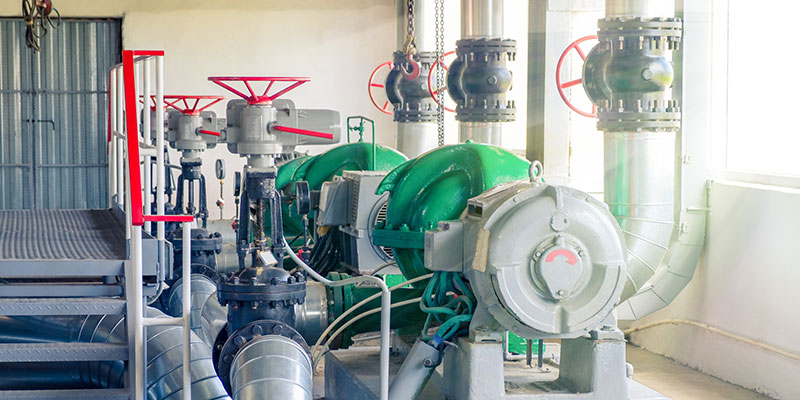In the power industry, recycled wastewater can be used for cooling, reducing reliance on traditional sources of fresh water.
Water reuse is just one means of making industrial use of fresh water more sustainable
Around the world, the agricultural and industrial sectors are the two largest water users, accounting for nearly 90% of direct water withdrawals. Agricultural water withdrawal accounts for nearly 72%, industrial (including energy production) accounts for about 16%, and municipal water withdrawals make up the balance.
In the United States, withdrawals of fresh water are dominated by energy production (41%) and agricultural irrigation (37%), with domestic and public use (14%), industrial and commercial use (6%), and livestock and aquaculture (3%) making up the balance.
According to the World Economic Forum, by 2030, demand for water is projected to exceed the rate of supply by 40% if current water usage continues. In many regions, the demand for water already is exceeding sustainable supply, while water scarcity is restricting economic growth in others. Water usage in the U.S., China, and other developed countries is currently far outpacing the rate at which it is being replenished.
Water scarcity not only has a direct impact on industries that depend on water, but it also places the global population at risk of a major food crisis. Current global water usage is unsustainable, but how do we balance the need to conserve our water resources with the need to produce food, electricity, and other products that we use in our everyday lives?
Reducing Water Withdrawals in Agricultural
With agricultural irrigation responsible for the highest water withdrawals globally, this is one area where improvement could have a significant impact. We need food to survive and crops need water to flourish. So, what can be done?
Farmers can switch to more water-efficient irrigation techniques to limit water lost to evaporation and runoff. They can also water their crops with treated wastewater rather than withdrawing fresh water.
Energy Production Savings
The energy sector uses large quantities of water to cool thermoelectric and nuclear power plants. Switching to recycled wastewater (municipal or industrial) as a source of cooling water can reduce the demand placed on natural water sources without reducing the capacity of power plants.
Water-Intensive Textile Industry
The textile industry is extremely water-intensive. For example, a study from 2005 found it took 2,866 gallons of water to make a pair of jeans, with most of the water being used during wet processing and in the dyeing process. The textile industry can conserve water by minimizing wastage, spills, and leaks, and by implementing water-reuse measures. Reusing process water in other areas of textile mill operations and reusing uncontaminated cooling water in processes that require hot water can reduce wastewater outputs significantly.
Food and Beverage Industry
The food and beverage industry is another water-intensive industry, with water being used to produce and process meat and other food products, as well as in the production and bottling of beverages. Reusing process water internally can drastically reduce the amount of water consumed and wastewater generated.
Wastewater Recycling and Reuse Solutions
Fluence offers a variety of cost-efficient wastewater recycling and water reuse solutions for various industries. Fluence’s state-of-the-art wastewater treatment solutions can deliver high-quality wastewater suitable for irrigating crops or recharging aquifers.
Fluence’s EcoBox™ treatment plants deliver tertiary treatment with ultrafiltration, reverse osmosis, advanced oxidation, and disinfection, making grey water and treated industrial wastewater suitable for reuse in nonpotable applications.
The compact, plug-and-play units are packaged in 40-foot shipping containers for easy shipping, offering a simple and cost-effective way for industries to recycle and reuse wastewater on-site to improve water efficiency.
If you’re looking for a cost-effective solution that will turn your wastewater into a valuable resource, contact Fluence’s water reuse experts to find out how we can help reduce your water demand.

